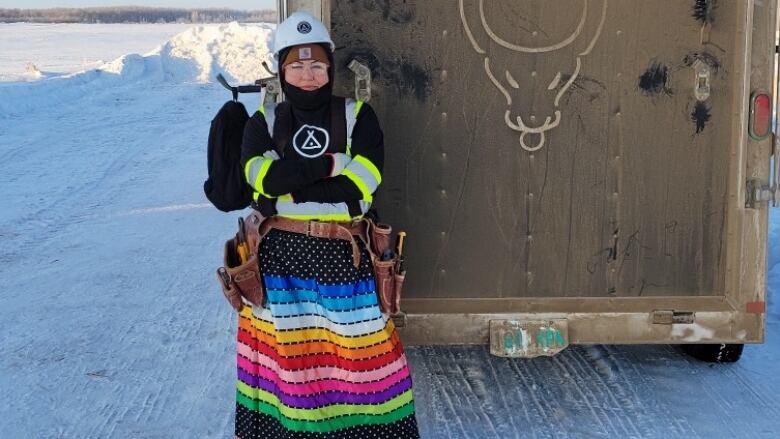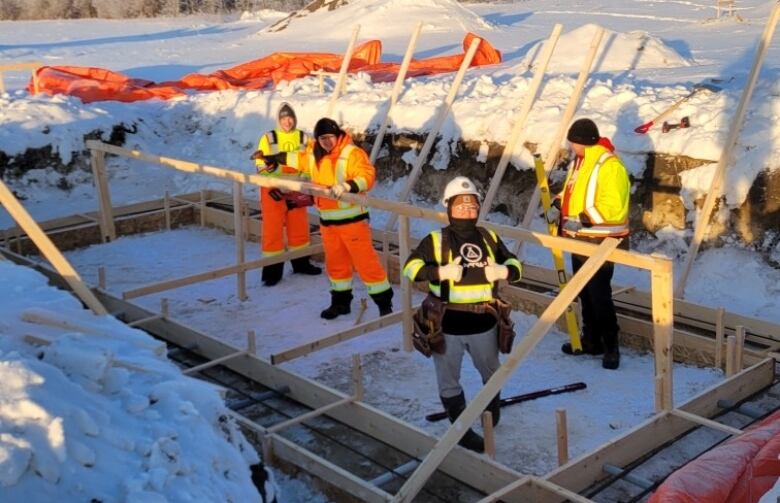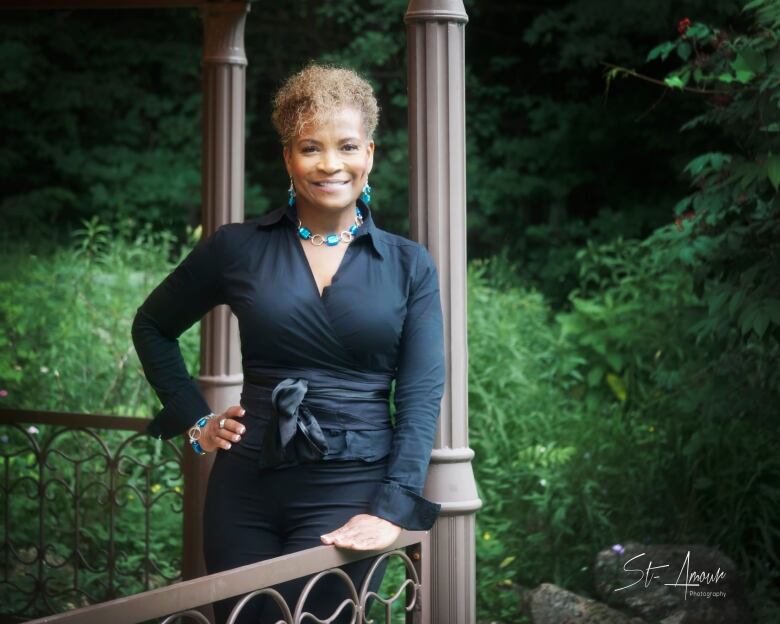Program aims to get more Indigenous women, 2SLGBT people into trades
NWAC has a new program to help match potential apprentices with local employers

Shylah Nokusis saysshe didn't know skilled trades were an option for her when she was growing up.
"I tried shop [class]. I loved it,"she said.
"But I was always told that, as a woman, you gotta go to university."
Now Nokusis, from Peepeekisis Cree Nation in Saskatchewan, is a Red Seal carpenter and owns Osihcikewin Trades Training, where she helps other Indigenous people learn atrade.
She's passionate about encouraging other Indigenous people, especially women and girls, to gettheir own Red Seal qualificationproof that a tradesperson has met the national standard in their trade.
It's part of why she's become involved in the Native Women's Association of Canada's (NWAC) newNational Apprenticeship Program (NAP).

NAP uses money from the federal government to connect apprenticeswith employers. Employers then receive federal funds to help cover the costs of the training.
Employers get up to $10,000 per apprentice, according to Karen Ergus, senior director of public relations for NAP. An employer can take on two apprentices per fiscal year. Indigenous women, two-spirit, transgender or gender-diverse people can apply to become an apprentice under the program.
The program offers funding for 39Red Seal professions from bricklayer to painter/decorator, according to Ergus. She said it's possible the government selected those 39 professions because of a labour gap in those fields.
"This program is very important to everyone because [you] can be employed, you can feed your family and you become very valuable to society," she said.
Nokusis already has one apprentice and is looking to get another one through NAP. She said she likes to work with women in First Nations communities whomay not realize a trade is an option for them.
She said a lack of resourcesand exposure is part of the problem.

"I liked shop when I was in high school but I was only able to take shop when I moved off-reserve and when I moved to the city, because a lot of on-reserve schools don't have shops," Nokusis said.
Through her company, Osihcikewin, she not only provides trainings buttravels to schools to talk to youth about the benefits of learning a trade.
"To see how much confidence that [training] gives them it feels good to be able to do that for somebody," Nokusis said.
Nokusis said a lot of progress has been made for women in the 15 years since she entered the trade. Now the biggest challenge is getting more women in supervisory or management/owner positions, she said.

"There's a lot of opportunities for women to get their foot in the door, but there's not a lot of opportunities for when they get their Red Seals to succeed or move higher up the chain."
Nokusis said it's important for women to pursue options like getting their Blue Seal to progress in their chosen fields. A Blue Seal certificationrequires business education and knowledge.
Ergus said it can be challenging to match candidates with employers, especially for peoplewhoface challenges with travelling for work. She said she hopes to see the government to fund a wider variety of jobs,including those that are more accessible for women who are caregivers and live in rural and remote areas.












_(720p).jpg)


 OFFICIAL HD MUSIC VIDEO.jpg)
.jpg)



























































































